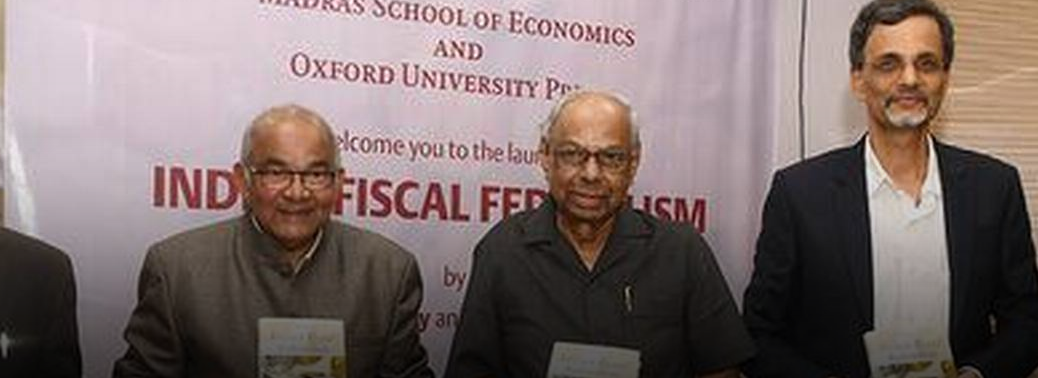BRING IN CONSTITUTIONAL AMENDMENT ON GST REVENUE-SHARING PROPORTION
08, Mar 2019

In News:
The Centre should bring in a constitutional amendment to fix the proportion of devolution of Goods and Services Tax (GST) collection between the Central and the State Governments quoted by former chairman of the prime minister’s economic advisory council c. Rangarajan.
Explained:
What is the issue?
Some States bemoan the loss of financial sovereignty.
How financial sovereignty is upheld in GST?
- The GST Council comprising all State Finance Ministers and the Union Finance Minister take the decisions on rates and several associated features. The Centre is also bound by it.
- Earlier the finance commission has decided the share of resources between centre and states and the recent one the 14th Finance Commission, had broken a new path in terms of allocation of resources. One of the major recommendations had been to increase the share of tax devolution to 42% of the divisible pool.
- The balance in fiscal space thus remains broadly the same in quantitative terms, but tilts in favour of States in qualitative terms through compositional shift in favour of devolution and, hence, fiscal autonomy. Let there be one committee to decide what the rate will be for five years.
- Petroleum and alcohol constitute the most important source of revenue for the States. Therefore, States have been reluctant to bring petrol and alcohol under GST regime in which there is maximum range beyond which petroleum and alcohol products cannot be taxed.
- The GST Council, where neither the centre nor the states can get decisions passed without the support of the other.
GST (One Hundred and First) Amendment Act, 2016:
1. It is a destination-based tax on consumption of goods and services. It is proposed to be levied at all stages right from manufacture up to final consumption with credit of taxes paid at previous stages available as set off. In a nutshell, only value addition will be taxed and burden of tax is to be borne by the final consumer.
The GST would replace the following taxes:
Taxes currently levied and collected by the Centre:
- 1. Central Excise duty
- 2. Duties of Excise (Medicinal and Toilet Preparations)
- 3. Additional Duties of Excise (Goods of Special Importance)
- 4. Additional Duties of Excise (Textiles and Textile Products)
- 5. Additional Duties of Customs (commonly known as CVD)
- 6. Special Additional Duty of Customs (SAD)
- 7. Service Tax
- 8. Central Surcharges and Cesses so far as they relate to supply of goods and services
State taxes that would be subsumed under the GST are:
- 1. State VAT
- 2. Central Sales Tax
- 3. Luxury Tax
- 4. Entry Tax (all forms)
- 5. Entertainment and Amusement Tax (except when levied by the local bodies)
- 6. Taxes on advertisements
- 7. Purchase Tax
- 8. Taxes on lotteries, betting and gambling
- 9. State Surcharges and Cesses so far as they relate to supply of goods and services
The GST Council shall make recommendations to the Union and States on the taxes, cesses and surcharges levied by the Centre, the States and the local bodies which may be subsumed in the GST.
Tax Rates:
There would be four tax rates namely 5%, 12%, 18% and 28%. Besides, some goods and services would be under the list of exempt items. Rate for precious metals is yet to be fixed. A cess over the peak rate of 28% on certain specified luxury and sin goods would be imposed for a period of five years to compensate States for any revenue loss on account of implementation of GST
Federal structure of GST:
It would be a dual GST with the Centre and States simultaneously levying it on a common tax base. The GST to be levied by the Centre on intra-State supply of goods and / or services would be called the Central GST (CGST) and that to be levied by the States would be called the State GST (SGST). Similarly, Integrated GST (IGST) will be levied and administered by Centre on every inter-state supply of goods and services.






